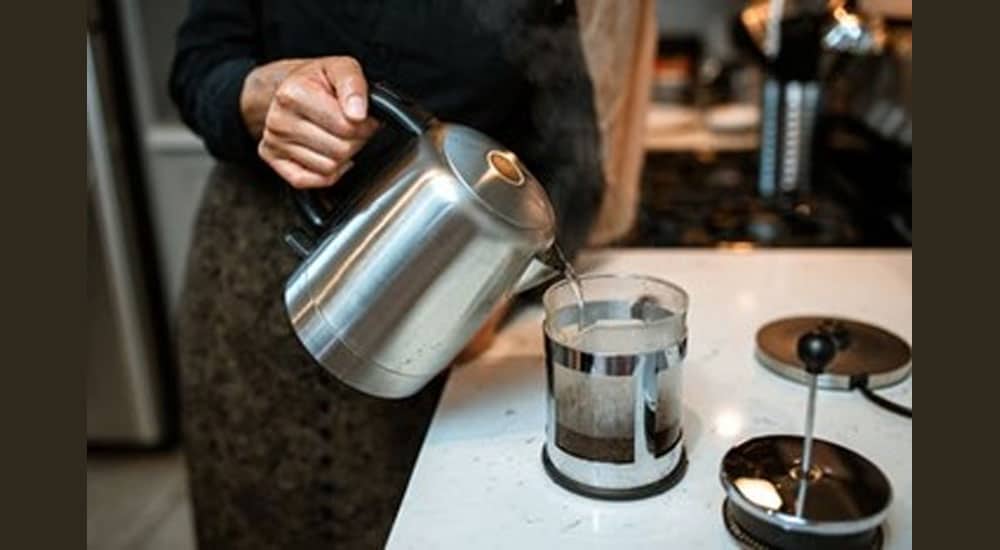Kim was a Carer for her Mum who had Dementia
Kim was a carer for her Mum who was diagnosed with dementia. Along with her three sisters, they looked after their Mum for four years. Each stage of their Mum’s dementia journey presented different challenges, some unforeseen.
Find out how Kim found the practicalities of caring for her Mum, the dynamics of being a family carer and how this worked together with having a family of her own.
Worrying signs
A hip replacement operation and a bad fall might have been a possible trigger for the onset of the condition.
Coming to terms with the condition
Kim and her family were also worried about whether their Mum was fit to drive. They arranged for her to take a simulated driving test for people with possible dementia and she failed, which made her very angry and upset. This was because driving equated to freedom. There were also other signs that things weren’t right: she’d leave the oven on or leave the doors unlocked. Once she walked out of a shop without paying for the goods. The family realised she was becoming a danger to herself.
Family pow-wow
In the beginning, they visited lots of care homes near to where their Mum lived in East Anglia, but eventually they all decided that they didn’t want her to go into a care home. They decided that together they would be able to manage their Mum’s care.
Keeping things going
As time went on, Kim’s sister organised a framework of care, with some carers coming in regularly to supplement the support that Kim and her sisters were able to provide.
Finding the right carers
“Getting the right combination of carers was very tricky, as was providing continuity, but after a long slog, we got there in the end.”
“Mum was always wanting to leave the house and was constantly on the go. She had always been a busy woman and her dementia seemed to fuel this even more, so we needed two carers at a time to look after her.”
The impact on Kim and her sisters
Kim and her sisters had a rota to care for their Mum. They would spend three or four days each with her, once a month, staying overnight. Then the carers would come in for a few days, as part of the rota.
The exhaustion of caring
“A four-day stint was absolutely exhausting. At night, I’d wake up to find my mum peering over me and asking me who I was. I loved my Mum to bits, but it was full on and I barely got any sleep. I’d reach the point when I’d think I just can’t do this any more.”
The financial impact
”One sister gave up her job and it was particularly intense for her. As a freelancer, I would turn down work, which was very frustrating. Obviously it impacted significantly on our finances, but we wanted to keep her in her own home for as long as possible.”
Juggling the needs of a young family
”As a carer, mum and wife, I found it difficult to prioritise things. My partner was very unwell at the time and my son was still young, so they needed me, but then so did my Mum. The impact on my relationship was quite profound – my partner couldn’t understand why I needed to support my Mum so much, so we argued a lot. But I felt a sense of obligation. She was coming to the end of her life and I wanted to give something back to her. My parents had always been there to support us.”
Disagreements between siblings
”From time to time, we would have big family arguments. The lack of sleep and exhaustion from being constantly on the go would leave us ratty and irritable – also if we didn’t think someone was pulling their weight, we’d end up quarrelling. One of my sisters who gave up her job had a break-down from the stress of it all, so we had to step up the care for my Mum to give my sister some respite.”
The frustration of caring
”There was also the deep frustration of caring. Mum would repeat herself over and over again. The constant repetition was really difficult to cope with and it was also upsetting because she’d forget who I was.”
Progression of the condition
As the disease progressed, Kim’s Mum’s speech started to go and she found it hard to form coherent sentences or write anymore.
“With the progression of the condition, caring for my Mum went through different stages, which meant you were constantly adjusting to her new needs. In the later phase, she became very dependent and child-like and we had to tend to her personal care much more.”
“Mum would get really angry when her dementia got worse. She’d also get very frightened as dementia can cause visual impairments. She would see a puddle and think this was a hole in the ground. She was also very frustrated by the lack of freedom in her life.”
Things got to the stage where Kim and her sisters agreed that putting their Mum into a care home was the only solution – her need for specialist care had become essential. “Even then, it wasn’t plain sailing and Mum ran away from the home three times.”
“Without a doubt, caring is one of the toughest jobs I’ve ever done, it was emotionally and physically draining, but the upside was that I had precious time with my mum at the end of her life.”
How Islington Carers Hub can help
Islington Carers Hub supports unpaid carers who are supporting a friend or family who is frail or disabled, or has a long-term illness, mental health issue or substance misuse problem, and who cannot manage on their own.
Torpekai Boukens is a Specialist Caseworker who has been with Islington Carers Hub for 3 years. Torps explains how Islington Carers Hub can support unpaid carers looking after someone with dementia.
Carers Assessment
After registration , the first thing we’ll do is offer a formal Carers Assessment to an unpaid carer. All carers have the right to a carers assessment and the assessment looks at how caring is impacting on the carer: physically, mentally, financially, emotionally and having time for themselves. Together we’ll have a conversation to identify what support the carer feels would help them in their caring role. We can also potentially help with alternative and complementary care arrangements.
Linking in with Health Services
We help people get an initial diagnosis. We also work closely with Dementia Navigators, a support service for people living with dementia and Admiral Dementia Nurses who can help with things like communication to help you stay connected to the person you love or how to help someone showing signs of fear or distress.
Activities for people with dementia
We introduce carers and their cared for to a variety of activities within the borough. These include Singing for Dementia, run by the Alzheimers Society. There’s also StAn’s café on a Saturday morning. Stan’s Café is a Dementia Inclusive Café at the historical St Andrew’s Church. Arts4Dementia have online Chatty Wednesdays for people with early-stage dementia and their carers.
Helping unpaid carers to get a break
Weekly Get Togethers
We help carers to take time out for themselves and many are enjoying the weekly Get Togethers that we are hosting. Since lockdown, these have been online and welcomed by carers, providing a convenient way to discover and develop new interests from painting appreciation to yoga and cooking!
Carers Support Groups
We have monthly Carers Support Groups, presenting support and resources that are available to Carers in Islington. ‘Working for Carers’ is going to be attending our next session on Wednesday 28 July at 10.30am.
Getting a longer break
Taking a longer break is so important for mental wellbeing. We can help you to apply for a flexible breaks fund and other grants.
More information
Whatever your needs or specific circumstances, get in touch with Islington Carers Hub on 020 7281 3319 or info@islingtoncarers.org, Monday to Friday 9am-5pm to speak to a member of our team.


